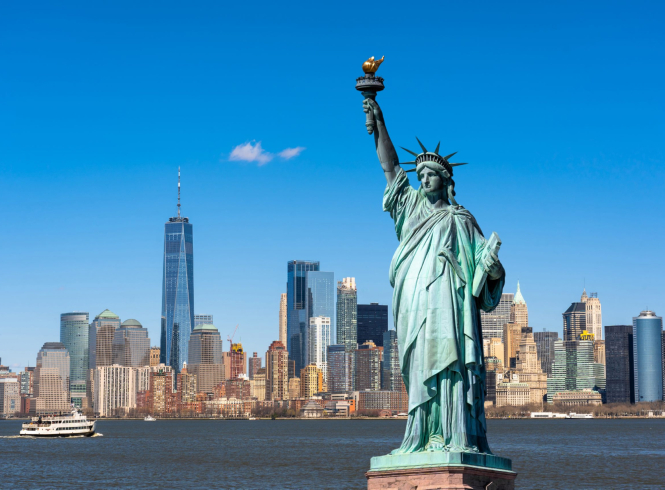The recent remarks by French politician Raphaël Glucksmann calling for the return of the Statue of Liberty to France demands a legal and diplomatic analysis.
While his statement was largely symbolic, it raises fundamental questions about the ownership, international agreements, and historical significance of the iconic statue. Can France legally demand the return of Lady Liberty?
The answer lies in international law, historical precedent, and diplomatic relations between the two nations.
The Legal Ownership of the Statue of Liberty
The Statue of Liberty, officially titled Liberty Enlightening the World, was gifted by France to the United States in 1886 to commemorate the centennial of American independence and celebrate the enduring friendship between the two nations. The agreement was clear: France would fund the statue itself, while the United States would finance the pedestal and its installation in New York Harbor.
Legally, once a gift is given and accepted, ownership transfers to the recipient. The United States has exercised full sovereignty over the monument since its arrival. As government property, the statue falls under the jurisdiction of the U.S. National Park Service and is protected as a National Monument. Under American property law, gifts given without conditions cannot be revoked. Therefore, France has no legal standing to reclaim the statue unless a prior contractual agreement stipulated a reversionary interest, which does not exist in this case.
International Law and Precedent

Under customary international law, once a gift is transferred between nations, it becomes the property of the receiving state unless explicitly stated otherwise. The 1969 Vienna Convention on the Law of Treaties, which governs international agreements, does not provide any legal basis for revoking a diplomatic gift unilaterally. The Statue of Liberty’s donation was an act of goodwill, not a loan or conditional agreement, further reinforcing the permanence of U.S. ownership.
Attempts to reclaim historical artifacts or monuments gifted between nations are rare, and in most cases, they are met with legal and diplomatic roadblocks. For example, Egypt’s attempts to reclaim the Rosetta Stone from the British Museum have been unsuccessful due to the British government’s legal claim of ownership. Similarly, Greece has long sought the return of the Elgin Marbles from the British Museum, but the U.K. maintains legal possession. These precedents indicate that even in cases of disputed ownership, international legal mechanisms favor the retention of artifacts by their current holders.
Diplomatic Implications
While Glucksmann’s call to return the statue is largely rhetorical, it does highlight tensions in U.S.-French relations. His claim that America has forsaken the values the statue represents—such as freedom, democracy, and asylum for immigrants—is a critique of recent U.S. political and foreign policy shifts. However, his remarks do not reflect an official stance by the French government. French President Emmanuel Macron has not endorsed such a demand, and the French government continues to view the U.S. as a key ally.
The White House quickly dismissed Glucksmann’s statement, with Press Secretary Karoline Leavitt emphasizing the deep historical ties between the two nations. She pointed to U.S. support during World War I and World War II, reinforcing the argument that the two countries have long supported each other in times of crisis. The U.S. government has no legal or political obligation to entertain the idea of returning the statue, and any formal request from France would likely be met with rejection.
Symbolism vs. Legal Reality
Glucksmann’s call for the statue’s return was not a literal demand but rather a symbolic statement meant to challenge the U.S. government’s adherence to the ideals the statue represents. He invoked Emma Lazarus’ famous poem, The New Colossus, which describes the statue as a beacon for immigrants seeking freedom. His remarks suggest that America’s recent policies on immigration, scientific freedom, and foreign relations have undermined the very values the statue was meant to embody.
Despite this rhetoric, the Statue of Liberty remains an enduring symbol of democracy and liberty worldwide. While political disputes may arise, the statue’s legal status as U.S. government property is unambiguous, making the possibility of France reclaiming it virtually nonexistent.
The Statue of Liberty will remain in New York Harbor, not only because of legal ownership but also because of its deep-rooted significance in American history and culture. Glucksmann’s remarks, while provocative, serve more as a political critique than a legitimate legal claim. The monument stands as a testament to the strong historical ties between the United States and France, and despite political disagreements, the two nations continue to share a commitment to democratic values.

